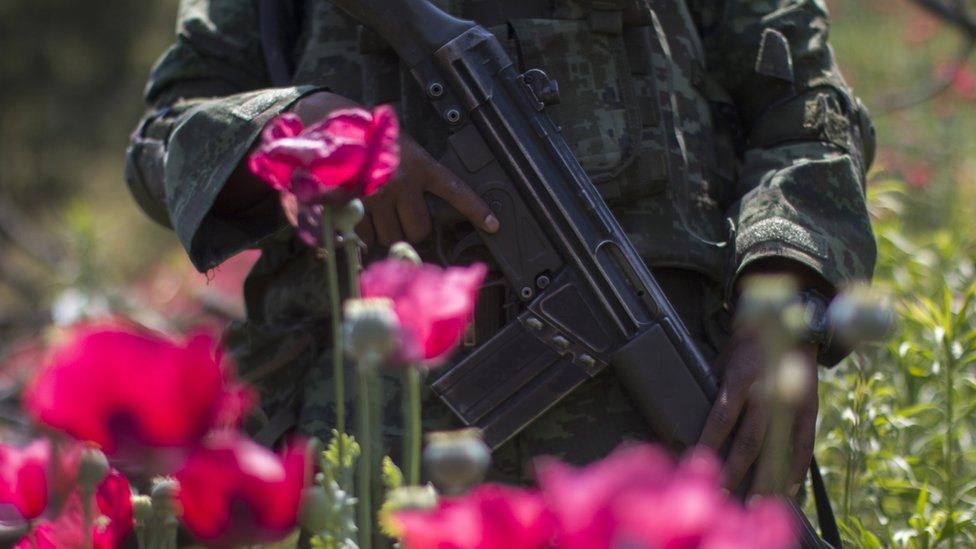Little hope ahead of polls in Mexico's Sinaloa state
- Published
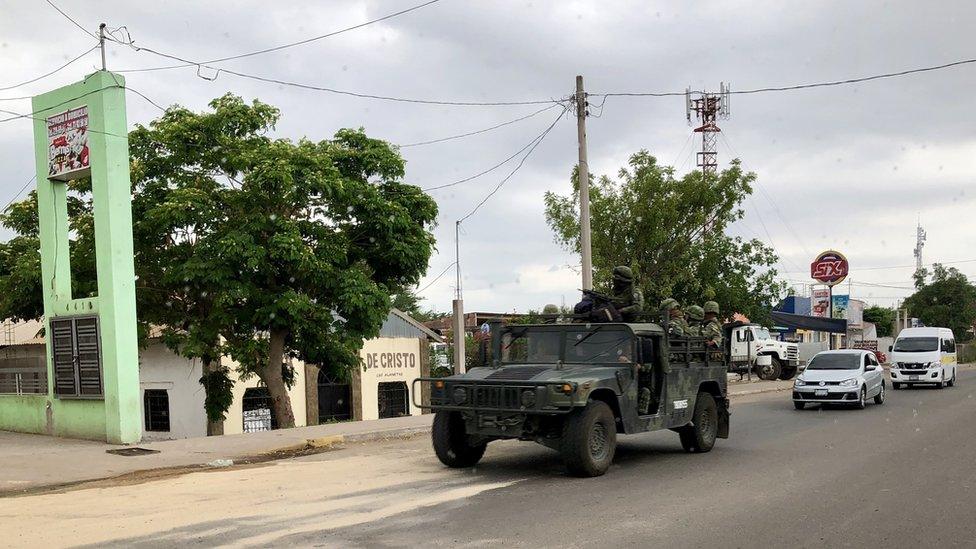
Despite the soldiers on patrol, violence in Culiacán remains high
On Sunday, Mexicans voted in what was described as the country's biggest election, with the presidency, the entire Congress and thousands of state and municipal positions up for grabs. The election comes at a time of record levels of violence.
Before the poll, the BBC's Shaimaa Khalil visited Culiacán, one of the worst-hit cities, and found that while residents she spoke to were planning to vote, they held out little hope for change.
When you drive around Culiacán, it is easy to miss the crosses and small shrines dotting the streets. They mark the spots where bodies have been found.
Investigative journalist Miguel Vera says there are so many that locals have stopped noticing them. "They're everywhere and we're so used to them," he says.
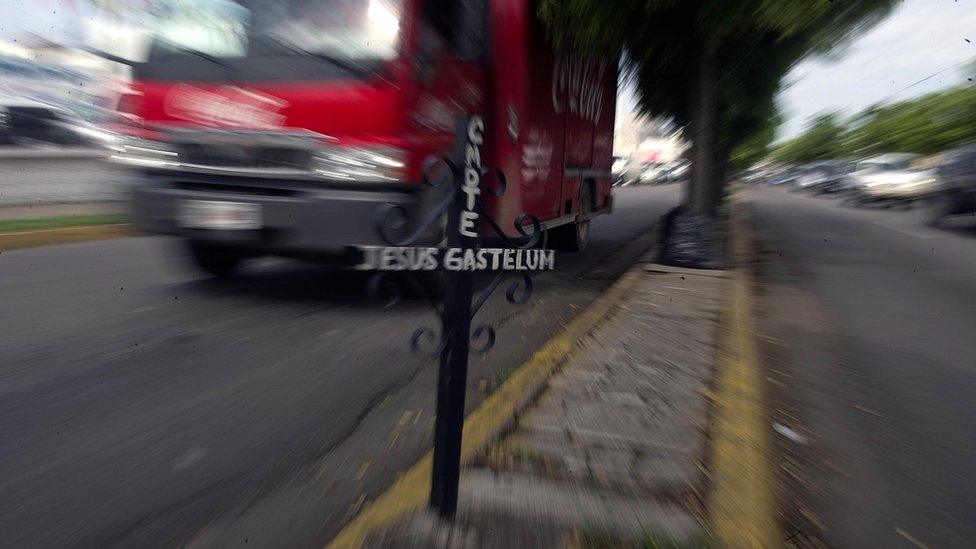
Crosses are put up by relatives at the spot where their loved one died
Culiacán is the stronghold of the Sinaloa cartel, one of the most powerful criminal organisations in Mexico and, arguably, the world.
The cartel's jailed leader, Joaquín "El Chapo" Guzmán, is infamous both for leading it and for his daring escapes from prison.
One of the city's best-known monuments is that to El Chapo's son, Edgar Guzmán Salazar, who was killed in 2008 when he was 22 years old.
A big marble cross surrounded by spotlights was put up in the car park where he was shot dead by gunmen as part of a turf war.
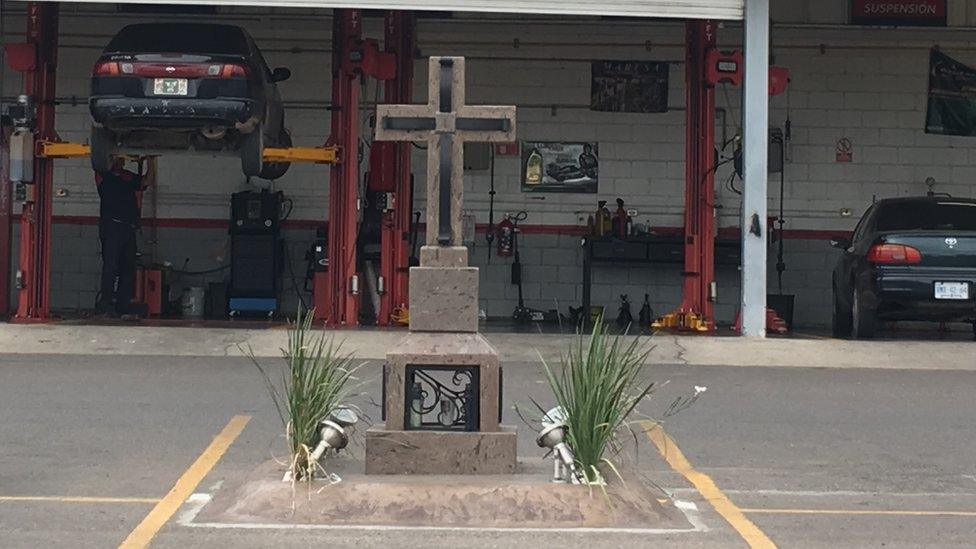
The cross stands in the car park of an auto repair shop, the spot where El Chapo's son was shot
Violence and organised crime are two of the most hotly debated subjects in the forthcoming elections. They are also part of this city's landscape.
And while many residents say that they have grown accustomed to the high levels of violence, they are still angry at the authorities for not doing more to combat crime.
"I haven't heard any of our candidates working on any serious or elaborate strategies against violence and crime. I think it's going to take a long time to do something serious," political science professor Esperanza Palma says.
City of the dead
Death is marked in many ways in Culiacán, nowhere more curious than in the Jardines del Humaya cemetery.
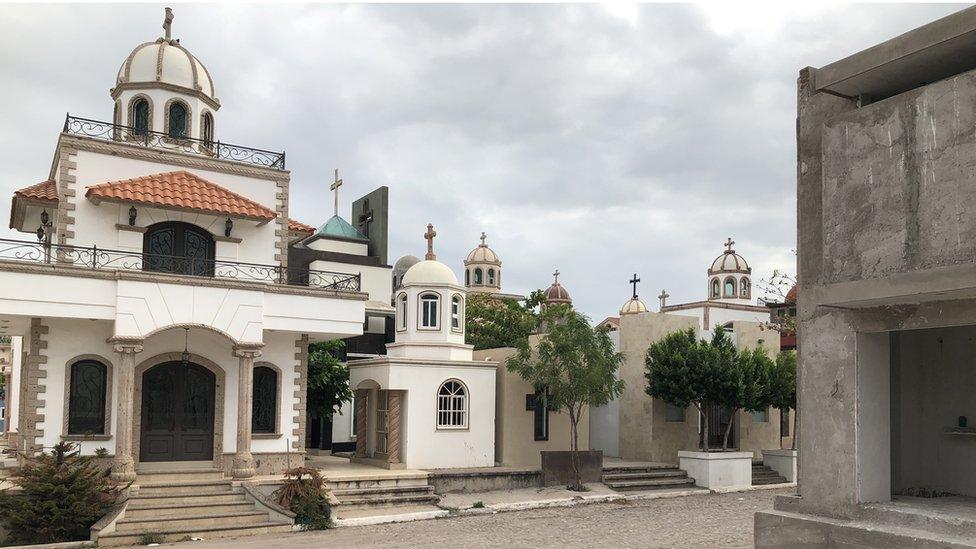
Graves are surrounded by structures resembling lavish villas
Tall ostentatious buildings with marble domes, elaborate crosses, tinted glass windows and huge columns stand opposite more modern structures with minimalist facades and glass exteriors.
Some of these buildings have parking spaces, others have surveillance cameras and bulletproof glass.
No-one lives inside, they just surround the graves of some of the richest people in the city, some of whom I am told were members of the drug cartels. One of the more ostentatious shrines reportedly belongs to El Chapo's half brother.
Sandwiched between the shrines resembling luxury villas are smaller, much more modest tombstones with basic crosses, flowers and pictures of the deceased.
The one thing these structures have in common is that most of those they honour died young, many of them killed in drug-related violence.
"You can tell the different social statuses of the people that are buried here," says one of the grave diggers who goes under the name of "Jorge".
'People are killed all the time'
He has worked here for 33 years but does not want to give his real name or say who exactly pays for these buildings. "Some of these places cost 11m pesos, around half a million US dollars," he says.
The Mexican cemetery where graves can cost up to $500,000
Jorge said that he would vote on Sunday but was expecting little to change: "I don't believe in politicians because they always lie to us. Year after year, election after election is always the same."
He thinks deeper reforms are needed. "The only way to stop the violence is ending corruption. This country is so corrupt and that is why there is violence."
The relentless violence means Jorge is never out of work.
"We're always busy here. People are dying or are killed all the time. It's sad to see how many people keep dying in this city. I don't want them to die but that's how it works here," he says.
But not everyone is able to bury those they have lost.
Digging for closure
On the banks of the Culiacán river, María Isabel Cruz Bernal and a group of women are busy with digging with their shovels at a seemingly empty spot.
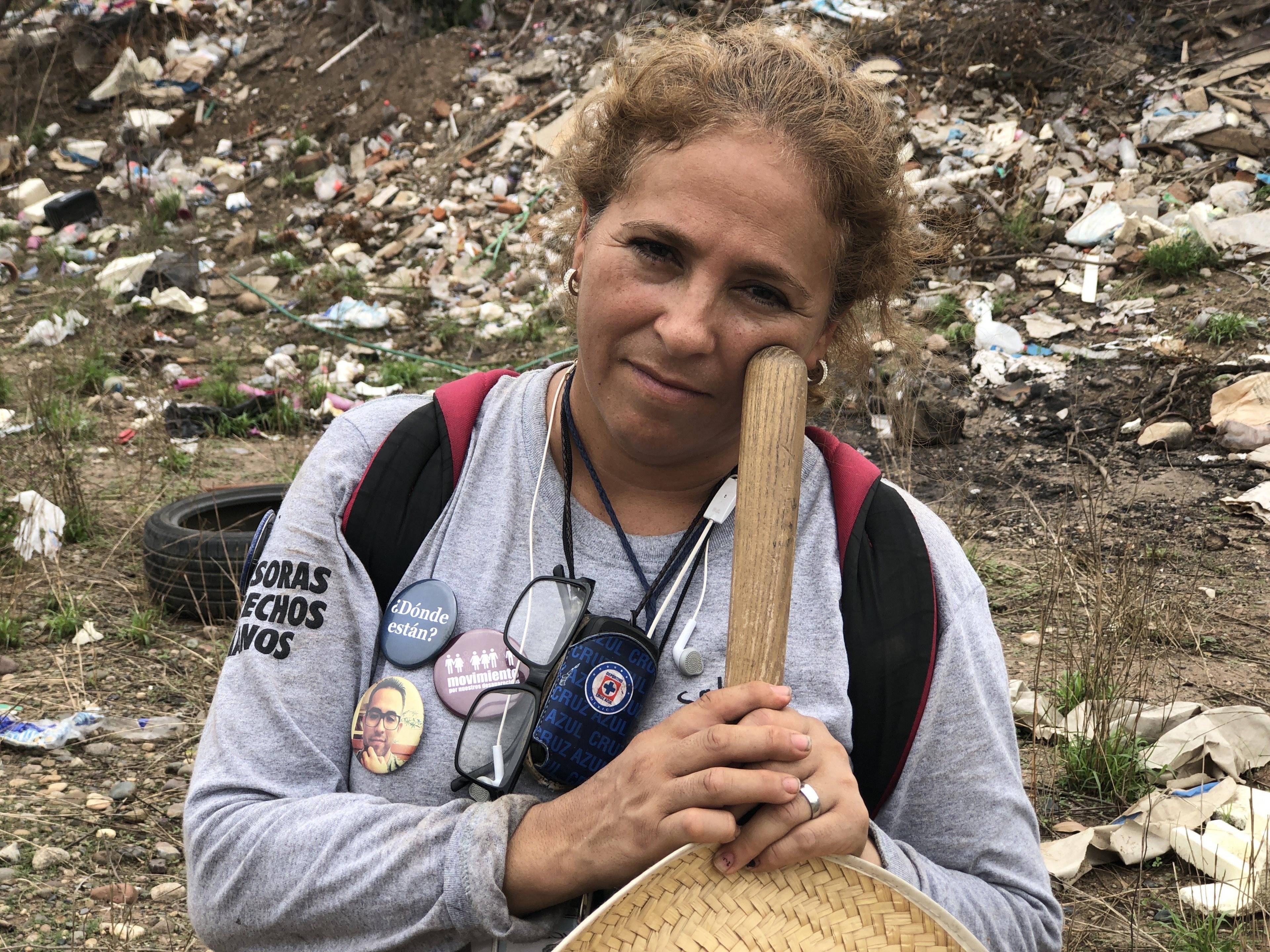
María Isabel Cruz Bernal is digging for human remains, hoping to find her son
They are searching for human remains, hoping to find those of their loved ones. Ms Cruz is looking for her son, Reyes Yosimar García Cruz, who disappeared 18 months ago.
"My son was a police officer. He was in my house when armed men came and took him." Ms Cruz recalls. "I went to the authorities but they did nothing, so I've decided to join forces with other families looking for their loved ones."
She does not know if her son is alive or dead, but she and the other families keep digging in the hope of finding closure.
"We fear what we might find. We fear that we might find the bodies but at the same time we'll be relieved from the pain of not knowing their whereabouts," she says.
Ms Cruz says she wants politicians to pay more attention to the cases of the disappeared and help families find them.
"The new government has to stop this violence, they have to give police officers better training so they can fight crime," she says. "But the government also has to create more jobs, so that the youth has other options than to get involved in crime."
The crosses which dot the streets of Culiacán are a stark reminder of the violence this northern city has seen. Relatives put them up so that the souls of the dead can rest in peace.
"No cross for my son yet," Ms Cruz says. "I'm just hoping I can find him so I can place one where he is found."
- Published13 June 2018
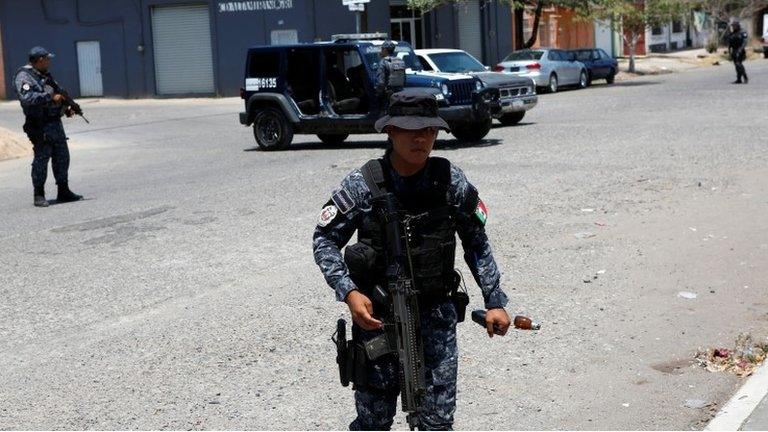
- Published24 October 2019
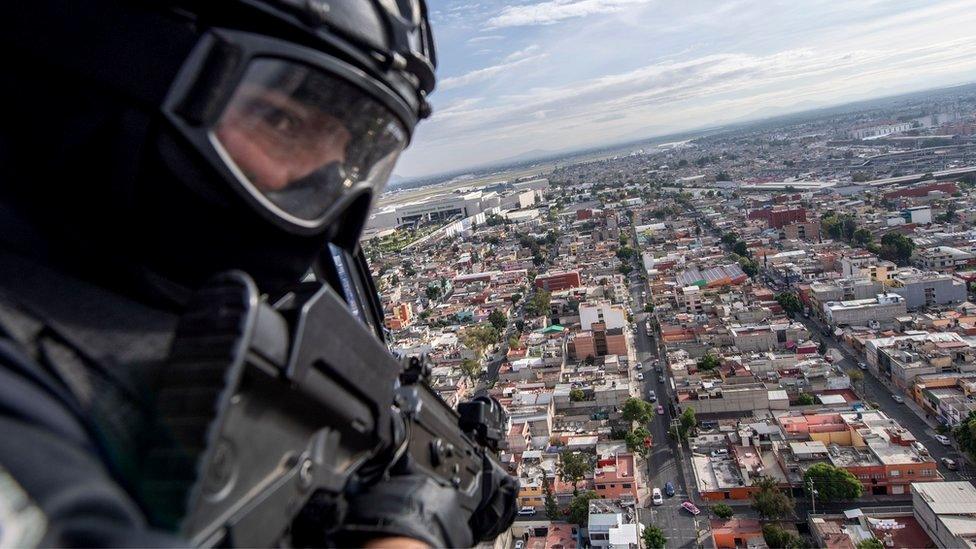
- Published25 January 2018
